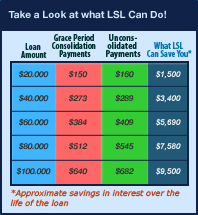 |
| By Elizabeth Brokamp |
 |
Bank statements don't make for scintillating reading, but if you take a close look, you could find a few unpleasant surprises. Such was the case when I glanced at our last statement and discovered our bank was simultaneously charging us for banking with online bill payment and banking without it. How we could be doing both — and paying for it — was beyond me. But there the charges were, $9.95 and $5.95, respectively, leaking dollars out of our checking account.
What small leaks are there in your financial life? What charges — erroneous or simply unnecessary — can you eliminate? The leaks may be small ones in the form of fees, or larger ones like monthly expenses for services you just don't use. Large or small, getting rid of these drains on your finances can leave more money for retirement savings, your emergency fund, or just plain fun.
Here's a list of just some of the charges that could be dribbling money away from your important financial goals and down the drain:
Banking fees: If you're being charged for banking, it's time to evaluate your choice of financial institutions. After we discovered the fees we were being charged by SunTrust, we switched to a different bank that allows us to bank online for free. Likewise, you may want to approach your existing bank to see if you qualify for an account upgrade that will offer you free checks or other perks and save you money in the process. Programs through your employer: Your employer may sponsor programs that you're no longer using, such as a prepaid legal program or pet insurance. Take a look at the deductions from your paycheck and make sure that, if they're optional (i.e., not required by the IRS), they're all for services you still want. Netflix: I love our Netflix subscription, but we make a concerted effort to use it enough to make the fees seem worth it. Take a look at your subscription and ask yourself: Do I use this regularly or should I cancel it? Should I go down a tier in service and fees? Web hosting fees: Are you paying a Web hosting fee for a site that has fallen by the wayside? Use it or lose it. Cable charges: Give your cable bill a look; perhaps you are paying for some premium channels that you never use. Going down just one level in your cable service can save you big bucks over the course of a year. Gym membership: If you use the gym regularly, a membership makes sense. But for many of us, signing on the dotted line was the most exercise we've gotten out of the whole experience. Take a look at your contract to determine when you can opt out. That $40 a month that's automatically debited to Gold's Gym can help pad your emergency fund. Credit protection programs: Take a look at the protection your credit card company already affords you before you say yes to additional coverage. You may well find you are sufficiently protected, without the upgrade and additional charges. Credit monitoring services: According to federal law, you are entitled to one free credit report every 12 months from each of the credit bureaus. If you space out your requests (for example, requesting Experian's report on Jan. 1, Trans Union's four months later in May, and your Equifax credit report in September), you can monitor your own credit for free. Anything you could get at the library for free: Memberships to periodicals such as Consumer Reports may be unnecessary drains on your bank account if you're at all inclined to use the library. My local reference librarian recently showed me all of the databases I could access through the library's website, including full-text reviews from Consumer Reports for all but the most current three issues. Never underestimate the power of the library!
This article is adapted from the Motley Fool Green Light "Money Answers" archive, which features more than 100 articles on personal finance topics ranging from taxes to credit to beginning investing, organized by subject and life stage. For access to this content plus the current newsletter, back issues, members-only discussion boards, and advisor blogs, take a free 30-day trial today!
Fool contributor Elizabeth Brokamp is a licensed professional counselor with a special interest in Robert Brokamp, editor of The Motley Fool's Rule Your Retirement newsletter. Netflix is a Stock Advisor recommendation. The Fool has a disclosure policy.
This feature may not be reproduced or distributed electronically, in print or otherwise without the written permission of uclick and Universal Press Syndicate.
|
|
 |













 Combining your loans into one single consolidation loan can reduce your monthly bill-paying paperwork.
Combining your loans into one single consolidation loan can reduce your monthly bill-paying paperwork.
